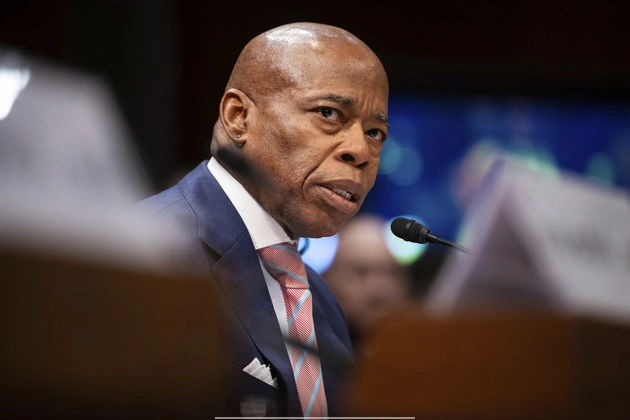
In a city where immigration policies are under scrutiny, Mayor Eric Adams of New York City finds himself in a position that raises eyebrows. With the looming threat of mass deportations proposed by former President Donald Trump, Mayor Adams’ approach to the issue has sparked both curiosity and concern.
Adams, known for his enigmatic leadership style and the challenges he faces due to his indictment, is navigating a delicate balance between upholding existing laws that limit NYPD cooperation with federal immigration agents and advocating for changes to these laws, citing concerns about shielding criminals. His recent decision to close a migrant shelter on federal land has added to the speculation surrounding his motives.
By engaging in discussions with Trump’s border envoy, Tom Homan, Mayor Adams is signaling a willingness to collaborate on border security strategies, including targeting individuals involved in serious crimes and gang activities. This shift in approach has drawn comparisons to his predecessor, Bill de Blasio, who took a more confrontational stance against Trump’s immigration policies.
One of the key initiatives introduced by Mayor Adams is the use of executive orders to bypass certain sanctuary laws, enabling the release of migrants into federal custody even without recent convictions for serious offenses. This move, while controversial, reflects Adams’ commitment to prioritizing the safety of the city’s residents.
Despite facing criticism for his perceived alignment with Trump, Adams remains resolute in his efforts to address the immigration issue in a manner that he believes serves the best interests of New Yorkers. His supporters point to a growing sentiment among city voters in favor of stricter immigration enforcement measures, further complicating the political landscape.
Concerns have been raised about the potential implications of Adams’ policies on migrant privacy and data security, particularly regarding the information collected during the provision of services to undocumented individuals. The city’s longstanding sanctuary policies, dating back to the late 1980s, have undergone revisions over the years, with the current administration facing scrutiny over potential loopholes in privacy protections.
As the debate over immigration enforcement intensifies, Mayor Adams’ approach continues to draw both support and skepticism. With the specter of federal intervention looming over sanctuary cities, the delicate balance between upholding local laws and federal mandates remains a contentious issue.
While the future of immigration policies in New York City remains uncertain, Mayor Adams’ actions and statements will be closely monitored as the city grapples with the complex challenges posed by the intersection of federal and local immigration regulations.
















6tfasx